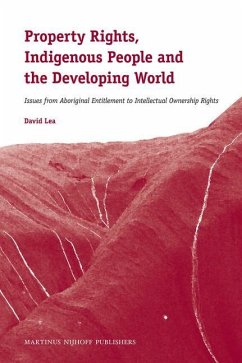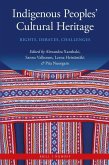This work offers an analysis of the Western formal system of private property and its moral justification and explains the relevance of the institution to particular current issues that face aboriginal peoples and the developing world. The subjects under study include broadly: aboriginal land claims; third world development; intellectual property rights and the relatively recent TRIPs agreement (Trade related Aspects of Intellectual Property Rights). Within these broad areas we highlight the following concerns: the maintenance of cultural integrity; group autonomy; economic benefit; access to health care; biodiversity; biopiracy and even the independence of the recently emerged third world nation states. Despite certain apparent advantages from embracing the Western institution of private ownership, the text explains that the Western institution of private property is undergoing a fundamental redefinition through the expansion








